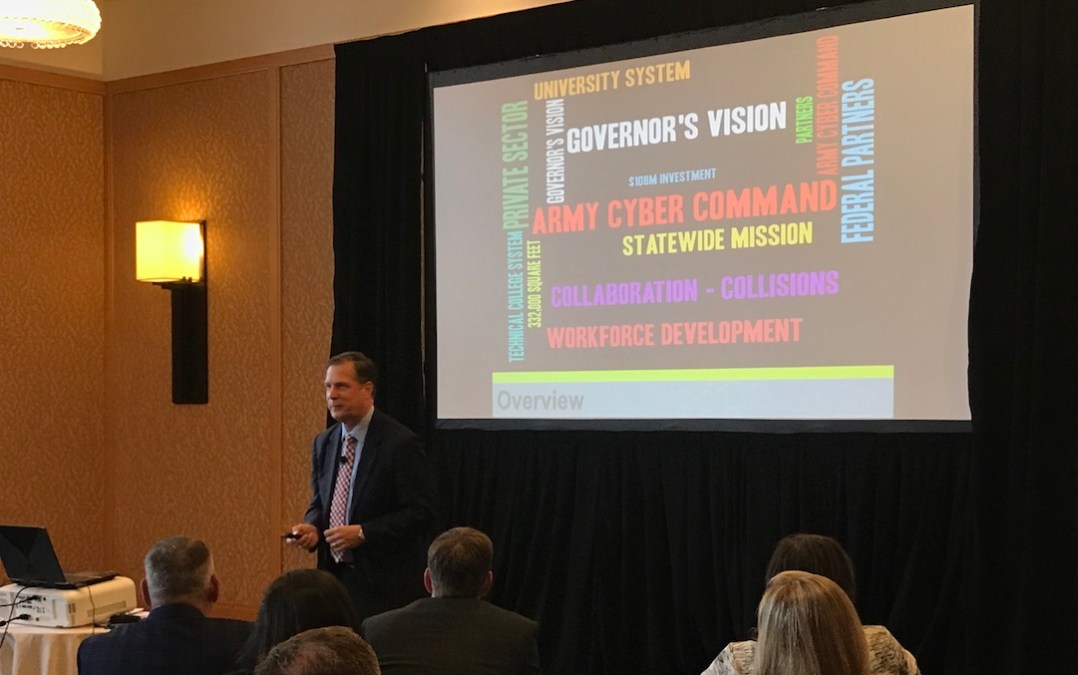Georgia CIO details state’s plans for its new $100 million cybersecurity center

Three months after opening, Georgia’s new cybersecurity training and research center is already 70 percent full, and will soon be a training ground for military and civilian personnel alike, the state’s chief information officer, Calvin Rhodes, said Monday.
Additionally, the rents paid by every tenant of the Augusta facility, which will eventually span 332,000 square feet between two buildings, will be enough to cover regular upgrades of the center’s equipment.
Rhodes gave the update on the $100 million Georgia Cyber Center, the first building of which opened in July, to his fellow CIOs at the National Association of State Chief Information Officers annual conference in San Diego.
For the Army, which is gradually relocating the headquarters of its Cyber Command to nearby Fort Gordon, Rhodes said the center will play host to the unclassified training sessions for personnel who are waiting for their security clearances to be completed, a process that can often take at least six months. The National Security Agency, which has an outpost at Fort Gordon, will also have a presence at the Georgia Cyber Center. (The center’s executive director, retired Col. Eric Toler, is a former head of the Georgia Cryptologic Center, as the NSA facility is officially known.)
State and local government employees from across Georgia will also use the new center to learn better cybersecurity practices, which will allow them to get much more hands-on training, Rhodes said.
Previously, he said, most state agencies submitted their written cybersecurity plans to the Georgia Technology Authority, which reviewed those documents and sent them back to their authors. The state would also periodically bring in speakers to give one-off lectures to information security workers. The new training courses will be much more intensive, Rhodes said.
“What’s different now is that you’ll still have that lecture, you might have some coursework to do, but that’s 25 percent or less of the class,” he told StateScoop. “The 75 percent is that you’re sitting in some scenario that’s been designed by the center, and showing people what you can do but more importantly what you cannot do.”
The Cyber Center’s facilities will be able to replicate state government systems for training simulations, a practice Rhodes said is used by large corporations like the paper and chemicals manufacturer Georgia Pacific. Practicing cybersecurity breakdowns in a life-like environment could help prevent more situations like the the ransomware attack that hit Atlanta in March, which forced officials to rebuild dozens of municipal computer systems and eventually could cost the city $17 million.
“Things are changing so quickly in this space you’ve got to give people the opportunity to be hands-on in a safe environment so that if they do something wrong they’re not bringing down a system,” Rhodes said. “With the right tools, we can make a copy of something that looks very similar to their network, and their people can train on their real environments.”






